Soon, people realized you could "trade" all sorts of things! Everyone began carrying around as many objects as they could hold in the hopes of coming across someone to trade with (since they didn't have Netflix yet). This got very cumbersome, and remained so until the greatest of the Egyptian kings, Ankhahotep, one day got tired of carrying the royal throne on his back. "Enough!" he cried, but in Egyptian. "From now on, we're only trading things for gold!" Gold, of course, was still very heavy, so this was only a marginal improvement. Ankahotep decided to ease his subjects' burdens by taking half of everything they traded for the government. This was the first tax.
However, no one could think of a solution to the problem for a very, very long time. Eventually they just started handing out paper, and imagining that gold was attached to it. The economy was born! Eventually, an American president by the name of Franklin Delano Roosevelt, took the revolutionary idea one step further. He was at a great disadvantage in trading, because he had never seen gold and couldn't imagine it very well, so his money was worth less than other people's. Frustrated by never being able to trade properly (there was still no Netflix), he had the idea of just making the value of the paper up entirely! Now people make up all sorts of wonderful numbers, driven by "invisible hands", "animal spirits", "stocks", "inflation", and plenty of other made-up things that make it all very exciting but of course don't really exist.
Of course, ever since Ankhahotep introduced the idea, governments have been taxing as often and as much as possible. This is one way to get something you want without doing or giving anything in exchange. The other is murder. Which brings us to the pinnacle of human history....
Brought to you by Russtifinko and thellama73

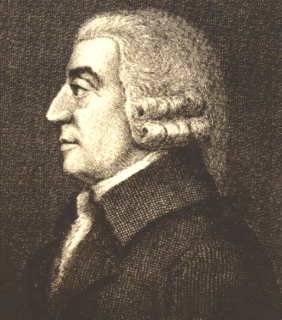
Adam Smith - Invisible hand - Can direct action from behind the scenes (takes another player's power nightly)

Jean-Babtiste Say - Supply creates its own demand - Selling 2 or more of anything makes them worth $2 each, regardless of what others sell.

Carl Menger - Founder of the Austrian School/Marginal revolution - knows that every little bit helps, and has an extra vote for just that reason
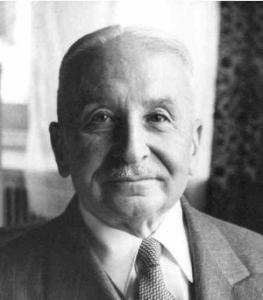
Ludwig von Mises - Human Action - holds highly-attended lectures nightly (BTSC with one player every Night)

F. A. Hayek - Competing currencies - Makes his own currency, and yours doesn't count - Prevents a player from buying or using any items once per Night, and sells his items for untaxable Bollars instead of normal dollars.

Joseph Schumpeter - Creative destruction - Can destroy an item in his possession to get something better

John Nash - Game Theory - Make two players play a game of your choosing each night

Vilfredo Pareto - Pareto efficiency - Prevent target player from being made worse off at night
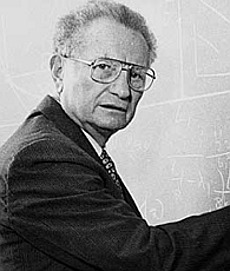
Paul Samuelson - Public Goods - Can share the use of another player’s item
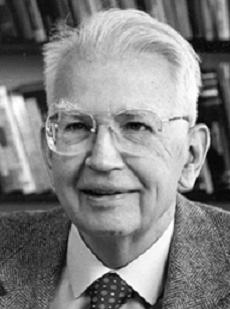
Ronald Coase - Coasian bargaining/Property Rights - May not be stolen from/share his items
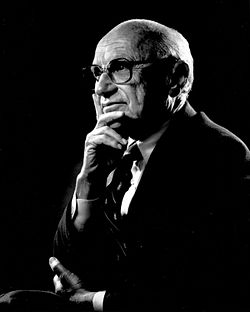
Milton Friedman - Monetarism - Can alter the money supply, doubling what the government pays for guns and butter once per 4 booms.

Murray Rothbard - Enemy of the state - Prevent redistributive actions.
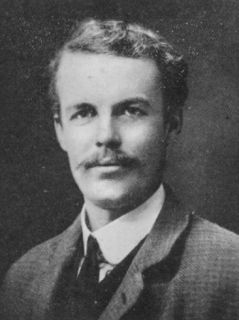
Arthur Pigou - externalities - His votes also spill over onto the player to each side of the one he votes.

George Akerlof - asymmetric information - Role check
Mafia:
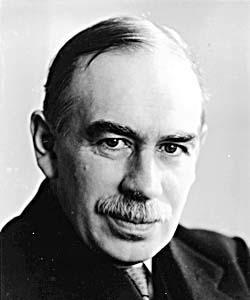
John Maynard Keynes - In the long run, we’re all dead - Kills nightly

Karl Marx - Dictatorship of the proletariat - Once per Night, chooses to target a player and destroy a random item (Kapital) they are holding, or to redistribute one dollar from a player of his choice to another.
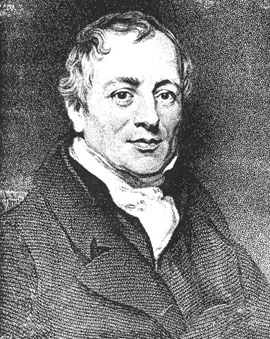
David Ricardo - Ricardian equivalence - Prevents tax cuts
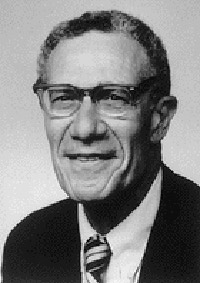
Robert Solow - Convergence/growth theory - uses technology to improve his items
Serial Killer:

Thomas Malthus - Malthusian population model - Is worried the population will outstrip humans' ability to supply themselves with food, so he keeps the population under control by killing nightly. If his victim has any Butter, he takes one from them.
The Economy:
Guns - takes one Night to produce. May be sold to the government on subsequent Nights. The value it sells for is determined by the supply; if more players sell Guns than Butter on a given Night, it is worth $1, but if more Butter than Guns are sold, Guns are worth $2. If both sell equally, they are worth $1.50 apiece.
Butter - Same as Guns, but vice versa.
Dollars - earned by producing and selling Guns and Butter.
Items:
1 Gun = Extra lynch vote
1 Butter = Remove a lynch vote from yourself.
1 Gun + 1 Butter + 1 Dollar = NK protect for tonight only
5 Dollars = Bribe someone's vote.
4 Guns + 1 Dollar = Extra kill
4 Butter + 1 Dollar = Lynch stop
4 Butter + 5 Dollars = Resurrect
Events:
Booms - triggered when more players produce than sell.
Busts - triggered when more players sell than produce.
Taxes - occur every 3rd day. Because llama is a co-host, it is flat and each player pays $1. Taxes are eliminated if Ricardo dies and Rothbard is still alive. If llama dies and Russti is still alive, we move to a proportional tax system and tax 30% of all earnings instead.









































 Fiddler on the Roof
Fiddler on the Roof




















































































































































 [-Mass Effect Mafia banner-]
[-Mass Effect Mafia banner-]


